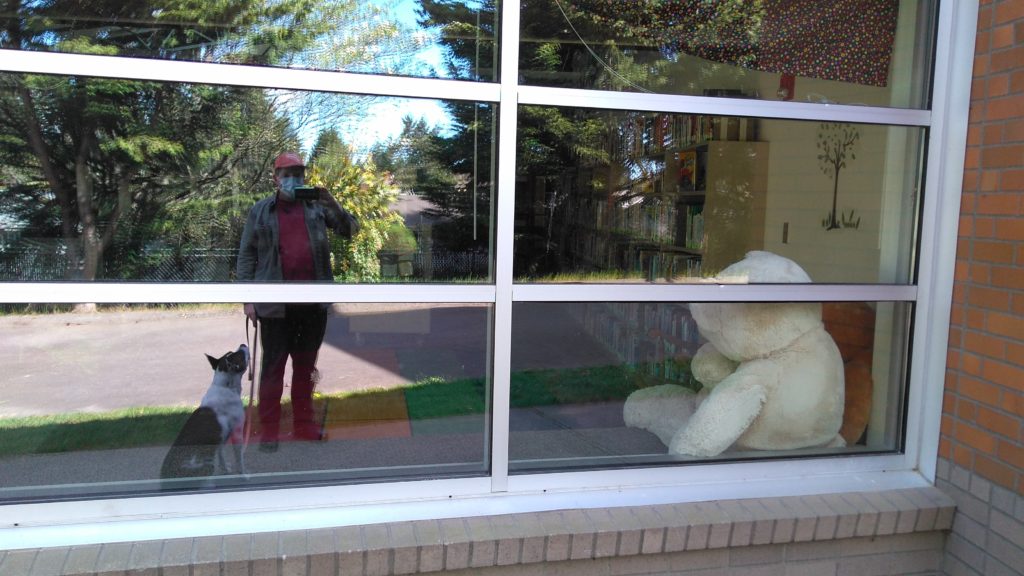This Week
Monday: The City will unveil its EATS Restaurant Voucher Program to support restaurant owners. Very cool idea. I have a question about re-purposing the original grant funding from King County (which was intended for something slightly different), but I’m assuming we got permission so that’s fine. Just so long as it doesn’t short circuit another targeted seniors program. I’ll ask. ?
Thursday: May 7, 5pm City Council Meeting (Agenda). This will feature (ta da!) Zoom! Public Comments! Another highlight will be a budget update.
Last Week
Monday: Phone call with 33rd State Rep. Tina Orwall to discuss air quality monitors around Sea-Tac Airport. She had high hopes for getting air filters installed at local schools. But that got killed at the last minute by a line-item veto from the Governor as a response to COVID-19. Here is an article that explains why this may provide amazing bang for buck in terms of health outcomes for our children.
Tuesday: MRSC presentation on how cities can plan for life after COVID-19. I say it over and over, but it’s always great seeing how other cities do things.
Thursday: 30th Legislative District Call with Senator Claire Wilson and Reps. Mike Pellicciotti and Jesse Johnson. One thing that was discussed quite a bit was ‘the digital divide’; the fact that we have so many low-income families in South King County without decent Internet access. If you’re like me (the average voter in DM in their mid-50’s/60’s) you may still think of this as merely an inconvenience. But if you have kids in school today, affordable, reliable Internet is as important to their education as pencils. We have got to find a way to make that service universal for all our kids. Soon. Whether COVID-19 sticks around or not. It is important for the City to start advocating now for ways to bridge that digital divide.
Friday I had a meeting with the UW researchers working on the MOV-UP study and various air quality issues. I also chatted with Puget Sound Clean Air Executive Director Craig Kenworthy. PSCleanAir is another one of those agencies most people are unaware of (unless you hear about ‘burn bans’) but Clean Air Agencies are a creation of the original Federal Clean Air Act/EPA fifty-ish years ago and they are supposed to monitor and enforce air quality. They have made remarkable progress for us over the decades–well except when it comes to airplanes. (D’Oh!) So SeatacNoise.Info among other groups are pushing to finally get air quality monitoring around Sea-Tac Airport. It seems incredible, but the nearest air quality monitoring station is in Georgetown! Now is the time to get permanent air quality monitoring in place—before the flights start ramping up again.
The Master Plan
Now near the bottom of that EATS memo, the tone sounds as though there has been sort of a master plan all along regarding the City’s management of COVID-19. Phase one was setting up the Emergency Operations Center (EOC). And now that is done, Phase 2 seems to be providing help to residents and small business. Sounds reasonable.
But the City government (and always remember that when I say that I mean ‘the municipal corporation’ led by the City Manager, the City Council is not the government) has done a great job of keeping the Council (or at least me) in the dark. So I am slightly skeptical. I literally read about it on social media at the same time as most of you.
But that said, it feels to me as though the City is simply reacting to activism by a number of local organizations and then myself and Councilmember Martinelli on any number of fronts. I say that because that has been my experience in watching the City over the years, we have typically not been proactive on any number of issues. We tend to respond only after other cities else leaps into the fray (or there is a public outcry.) It’s one of the reasons I ran.
I also tend to think this because the memo credits Mayor Matt Pina and Michael Matthias–stating that this is their joint effort, not that of the Council. The usual custom is to credit the full Council for any action like this and the City Manager is as un-noticeable as possible (Or at least that’s what they taught me at Councilmember School. 😀 ) I’m a bit puzzled whenever any Councilmember (including the Mayor) takes individual credit for a City initiative. Don’t get me wrong: the program is helpful and if I were a local restaurant owner I’d be thrilled. But it also feels political.
Lessons Learned
Anyhoo, back to COVID-19. I don’t think it’s too early to start thinking about things we might have done a bit differently–not to assign ‘blame’ but, again, dumb engineer me, it’s appropriate now to do some lessons learned. These are my thoughts:
First: Communicate. If the City had/has a multi-phase plan (and if it didn’t? See above.), it should have communicated it clearly from the beginning, first to get Council input and then to the public so we would all have aligned goals. A lot of business owners are struggling with high levels of *FUD. So anything the City could have done from the git go to provide a bit of ‘help is on the way’ would have made a real difference.
Second: Collaborate. We already have several local organizations that are dedicated to helping promote the City and business. We could be working together, leveraging their efforts to make promotions with much higher visibility; programs that could extend far beyond just seniors and local residents. In other words, this could be an opportunity to make lemonade out of lemons and (finally) have a cohesive promotional campaign for the City Of Des Moines–something I’ve been yammering about since about 2012.
Third: Think long term. Many of our businesses will need planning help. I hear some of your eyes rolling already (yes, I can hear eye rolls over the Interwebs). I read all the time, “the city should not do such and such…” As a dumb engineer, I gotta tell ya: I hate the word “should”. My belief is that ya use whatever tool works best to solve the problem in front of you. And right now, our small businesses (all of them, but let’s start with restaurants) need new tools because profitable sit down service may not make a come back for a while. Many of them are now doing takeout, but some are executing this much better than others. OK, perhaps take-out is a long-term trend, not just something that gets dropped when the emergency is over. Restaurants that do takeout particularly well will have a competitive advantage (safer, faster, more convenient?) And if we can find ways to help all our restaurants do that better than other cities? Our city (literally) takes their lunch. We don’t have a Chamber Of Commerce, so it seems to me that the City has a role to play in this sort of long-term business support, perhaps by making management experts and seminars available. That’s just one thought. I’m sure there are about a dozen other really good ideas to help our business community adapt.
Emergency Response
I do not want to be overly critical of our City’s response. I have no doubt that all our Staff have performed admirably and I salute them for their service. I’m just saying that I don’t see where our actions have been demonstrably better than our peer cities. And it’s worth noting because our management and the current majority have made that one of their key talking points for the past three years. We even have a special place in our budget for Emergency Management that other cities do not. And at the risk of ruffling even more feathers than usual, I will point out that this is one of those times where having a City Manager who is also Economic Development Director may have not been the best configuration. The City Manager understandably had more than a full plate during Phase 1. If there had been another person in the Economic Development role, perhaps we could have worked on Phase 2 concurrently and, again, provided more immediate support to local businesses.
I’m not trying to be ‘hard’. I’m just saying that this sort of review should be happening at every level of government. Our City Council should be reviewing how we can be doing better in Phase 2 (and beyond) right now. And again we need to do more because we have to expect that COVID-19 will be with us for a good while (and may even resurge.)
*FUD: fear, uncertainty and doubt.





